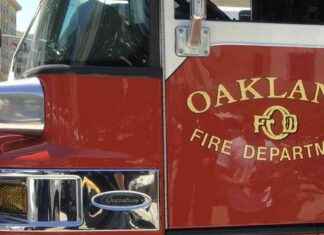The escalation of the crisis between Venezuela and Guyana over the Essequibo, a disputed territory between the two neighboring countries, is advancing without brakes when there are only eight days left until the referendum proposed by Nicolás Maduro is held. The last question of the five in the consultation asks Venezuelans if they agree to impose the state (region) of Guyana Esequiba to be annexed by Caracas, which has aroused great concern in the international community.
Currently, the 160,000 kilometers west of the Essequibo River and up to Mount Roraima are administered by the Georgetown government and are in full litigation in the International Court of Justice, although Caracas does not recognize it. For two decades, Hugo Chávez and Maduro himself forgot their claim as Guyana was an old ally of Cuba and a key piece of the Caribbean community, which Chavismo turns to for votes in international organizations. The discoveries of the oil company ExxonMobil in recent years, which have already made Guyana the second fastest growing country on the planet, have turned Essequibo into an economically coveted territory.
“This is not an armed war, for now… With these forms of neighborhood pimp (in reference to the president of Guyana, Irfaan Ali) we will not resolve the dispute,” said General Vladimir Padrino López, Minister of Defense. and a key piece in military support for Maduro. “For now” is the same expression that Hugo Chávez used when he failed in his 1992 coup attempt against Carlos Andrés Pérez. Six years later he would win the presidential election.
“With our Bolivarian National Armed Forces, all of Venezuela will continue fighting to recover Essequibo, for sovereignty and national integrity. It is our destiny!” cried Maduro, immersed in a million-dollar propaganda campaign, with which he seeks to mitigate the effects of the successful opposition primaries.
“In Guyana, the Southern Command (US) rules. We have obtained evidence that they are beginning to build a military base for the Southern Command targeting Venezuela. First serious element,” Maduro harangued in front of his generals.
The government of Irfaan Ali, an ally of the US and which has the support of the community of Caribbean and Commonwealth countries, has announced that next week two teams from the US Department of Defense will visit the territory of Essequibo. Georgetown assures that it is considering the establishment of military bases with foreign support in the face of the escalation of the conflict.
“We have never been interested in military bases, but we must protect our national interest. All available options will be exploited,” stressed Vice President Bharrat Jagdeo. Guyana considers that the referendum on December 3 is a “threat to peace” in Latin America and the Caribbean.
“The scenario is getting complicated. If this continues, (the conflict) will end up being armed,” Rocío San Miguel, president of Citizen Control for Security, Defense and the National Armed Forces, predicted with concern.






